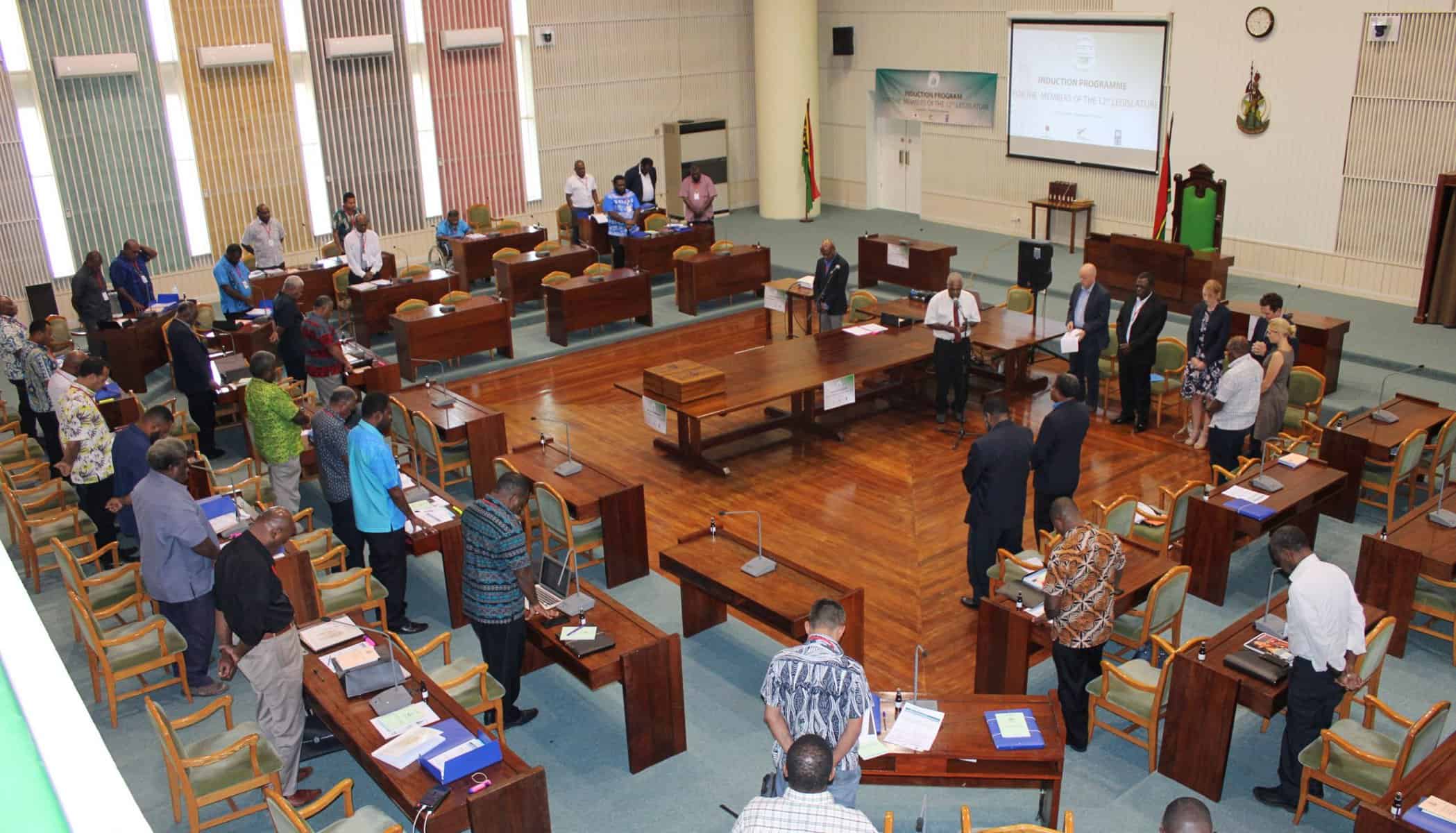The Vanuatu Opposition bloc has filed a case in court challenging President Nikenike Vurobaravu’s decision to dissolve Parliament amid a no-confidence motion against him.
The Vanuatu Daily Post/AAP reports that the President dissolved Parliament based on advice from the Council of Ministers (COM).
Former Prime Minister and Member of Parliament for Port Vila, Ishmael Kalsakau, expressed the Opposition’s dissatisfaction with the President’s move, asserting that the dissolution stemmed from a conflict of interest.
Kalsakau claimed the President acted to dismantle the Electoral College, the constitutionally mandated body responsible for removing him, amid allegations against him.
He accused Vurobaravu of acting beyond his constitutional powers.
“This decision reflects a clear conflict of interest,” he said.
“We are here to challenge whether the President has the authority to dissolve Parliament and simultaneously undermine the Electoral College.”
Kalsakau and the Opposition bloc went to the Supreme Court Monday to file their case. They were instructed by the Chief Justice to file their submissions Tuesday, with the court expected to deliberate on the matter in the coming days.
Kalsakau said the unprecedented nature of the case could set a landmark precedent:
“This is the first time such a case has arisen,” he said.
“The court must determine if the President can act unilaterally when his own position is under scrutiny.”
The Opposition maintained that if the court upholds the president’s decision, it will necessitate an election. Conversely, if the decision is ruled unconstitutional, further action against the President could follow.
The Principal Electoral Officer (PEO), Guilain Malessas, voiced concerns about the financial and logistical feasibility of holding a snap election. The costs for national elections are quite expensive.
According to him, conducting a snap election following the dissolution would cost approximately VT80 to 90 million (US$661,099- US$ 743,736). He said that currently, the office has no funds available for a snap election.
“Additionally, the regulation for registering political parties has not yet been gazetted, which is required before candidates can file nominations.”
He explained that following a dissolution of Parliament, a snap election will be held not less than 30 days and not more than 60 days after the dissolution.
Principal Private Secretary to the President, Clarence Marae, defended the dissolution, saying it was enacted under the Constitution following advice from the COM.
“The PM and Deputy PM presented the unanimous COM decision to the President, urging dissolution. Under the Constitution, the President must act on such advice,” he said.
Marae also dismissed claims that the Opposition was denied an audience with the President, asserting that the President acted strictly within his constitutional mandate.
Before the dissolution, the Opposition had planned to table a motion of no-confidence against the PM Charlot Salwai.
Opposition Leader, Gracia Shadrack, announced at a press conference Monday that the bloc had secured the support of several key parties, including the Union of Moderate Parties Rural Development Party, National United Party, Iauko Group, Vanua’aku Party, People’s Progressive Party, and the Laverwo Party.
The dissolution of Parliament has prevented this motion from being debated, further intensifying the political crisis.
